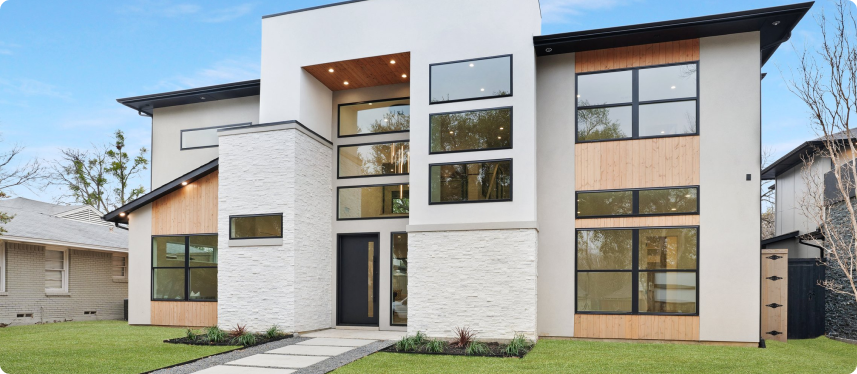

The Story Behind the Writer
David Anderson is a skilled ADU designer with years of experience in the construction industry. He specializes in creating custom ADUs that provide homeowners with the perfect balance of comfort, style, and functionality.
The Benefits of Inspection for Junior ADUs
Let’s explore the key advantages of undergoing inspections for Junior ADUs.
Structural Integrity
Inspections identify potential structural issues early, ensuring the Junior ADUs are built on a solid foundation and meet safety standards. These inspections also serve as a proactive approach to building and maintaining Junior ADUs.
By investing in these inspections, you can enjoy their Junior ADUs with peace of mind, knowing they are secure, stable, and designed to withstand the test of time.
Compliance with Building Codes
The inspection process for Junior ADUs ensures your property adheres to local building codes and regulations. These inspections act as a safeguard, ensuring that the construction of Junior ADUs meets all the requirements set forth by the local authorities.
Safety and Habitability
Junior ADU inspection processes are vital in evaluating various aspects, including fire safety measures, electrical systems, plumbing, and accessibility features. These inspections ensure the Junior ADUs provide a secure and comfortable living environment.
Professional Guidance
During Junior ADUs inspection process, inspectors identify potential issues and provide expert advice and recommendations to homeowners and builders. Leveraging their extensive knowledge and experience, they can help you make informed decisions regarding corrections and improvements.
Preparing for the Inspection
Before the Junior ADUs inspection process, thorough preparation is essential to ensure a smooth and successful process. Here are some crucial steps:
- Completion of Construction: Ensure all construction work, including plumbing, electrical, and HVAC systems, is finished.
- Safety Measures: Install smoke detectors, carbon monoxide detectors, and fire extinguishers in appropriate locations. Verify that windows and doors have proper egress and security features.
- Accessibility: If applicable, ensure all your Junior ADUs complies with accessibility requirements, such as wheelchair ramps and accessible bathrooms.

Types of Inspections
Here are the preliminary Junior ADUs inspections you are likely to encounter:
| Foundation Inspection | This inspection ensures that the foundation of the Junior ADUs meets structural requirements and is stable. |
| Framing Inspection | Ensuring the structural framework, including walls, roof, and floor systems, is properly built and adheres to safety standards. |
| Electrical Inspection | This inspection focuses on the electrical wiring and installations within Junior ADUs. |
| Plumbing Inspection | This inspection examines the installation of pipes, fixtures, and drainage systems. |
| Mechanical/HVAC Inspection | This inspection evaluates your Junior ADU’s heating, ventilation, and air conditioning systems to ensure correct installation. |
The Inspection Process
Here’s a breakdown of what you can expect during the Junior ADUs inspection process:
- Documentation Review: Ensure you have all the necessary permits, plans, and documentation readily available for the inspector to review.
- Access Arrangements: Provide the inspector with convenient access to all areas of the Junior ADU to facilitate a comprehensive evaluation.
- Testing and Measurements: The inspector may conduct various tests and measurements to assess compliance with safety and energy efficiency standards.
- Deficiency Reports: The inspector will provide a detailed report outlining the necessary corrections or improvements if deficiencies or violations are identified during the inspection.
Post-Inspection Actions
After the Junior ADU inspection process, you may need to address any issues identified by the inspector. Here are the recommended steps:
- Corrections and Reinspection: Make the necessary corrections to rectify deficiencies. Once the corrections are completed, schedule a follow-up inspection to ensure compliance.
- Compliance Certification: If all your Junior ADUs passed the inspection, you will receive a compliance certificate or approval document verifying that your unit meets the required standards.
- Occupancy Permit: Depending on local regulations, you may need to obtain an occupancy permit before legally renting or using the Junior ADUs.
Contact Us Now for Guidance and Exceptional Service
Ready to build safe and compliant Junior ADUs in the Bay Area? Contact our Bay Area ADU builders today to learn more about the Junior ADUs inspection process in the Bay Area and how our team can assist you in creating your ideal Junior ADUs.
FAQs
Bay Area Junior ADU inspections are crucial to ensure structural integrity, compliance with building codes, and overall safety and habitability.
Junior ADU inspections identify potential structural issues, verify adherence to building codes, assess fire safety measures, and ensure proper installation of electrical, plumbing, and accessibility features.
Before the Junior ADU inspection, ensure all construction work is completed, safety measures are in place, and the Junior ADUs meet accessibility requirements if applicable.
While consulting with professionals is recommended, you can conduct basic checks such as ensuring smoke detectors, fire extinguishers, and proper egress are in place.
To schedule Junior ADUs inspection, contact your local building department or inspection agency. Obtain the necessary contact information from your local government website or by directly reaching out to the building department.
These inspections ensure compliance with specific regulations and safety standards related to the foundation, structure, electrical systems, plumbing, and mechanical installations.
During an inspection, an authorized inspector visits your property to evaluate the construction, conduct tests, review documentation, and identify any deficiencies or violations.
If deficiencies or violations are identified, you will receive a detailed report from the inspector outlining the necessary corrections or improvements that need to be made before scheduling a follow-up inspection.